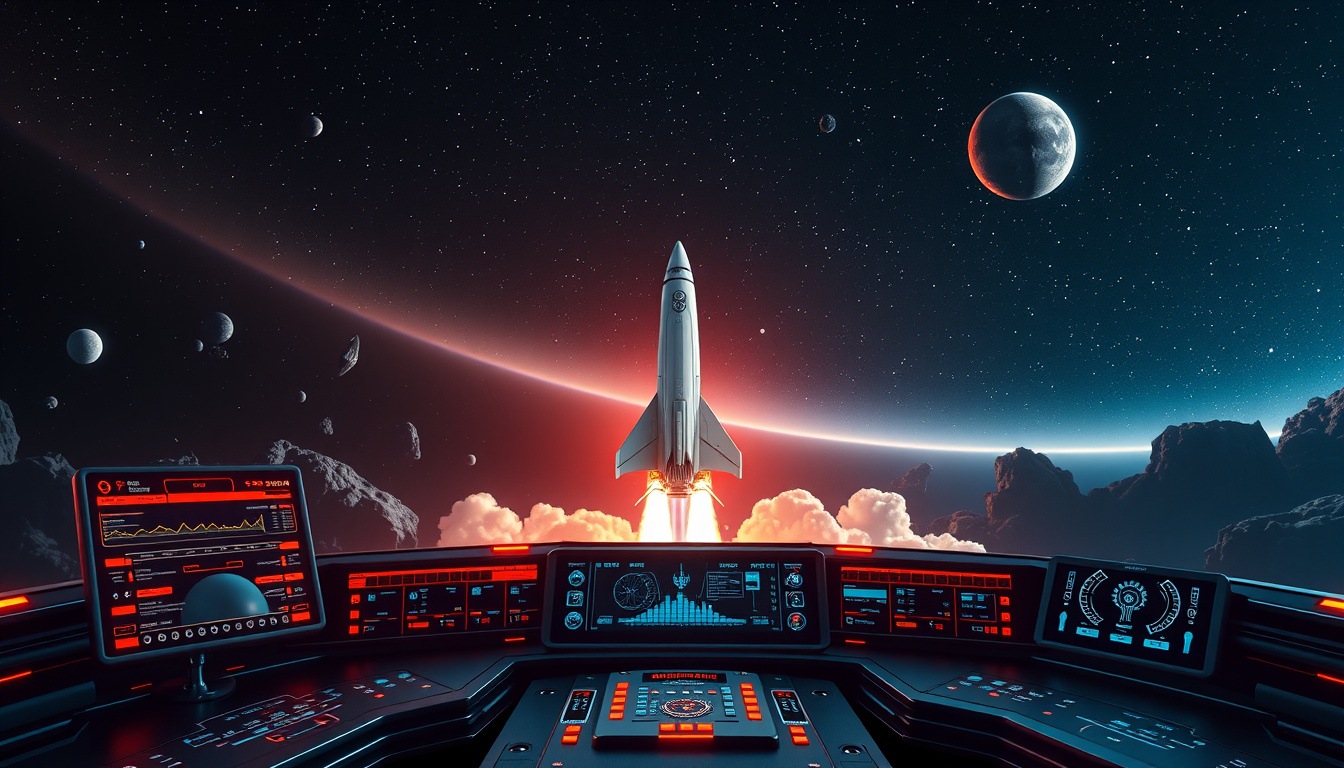As humanity reaches for the stars, the future of space tourism and exploration promises to reshape our understanding of travel, adventure, and the possibilities of the universe. This burgeoning industry is not just a figment of science fiction but a tangible reality on the horizon, offering unprecedented opportunities for private citizens to experience the wonders beyond Earth. With a range of key players leading this charge, innovative technologies propelling us forward, and critical environmental considerations at hand, we stand on the precipice of a new era in space exploration. In this article, we will delve into the emergence of space tourism, examine the major players in the field, explore technological advances driving progress, discuss environmental impacts, and look at the unfolding opportunities and challenges that will shape the future of space tourism and exploration.


Technological Advances Driving Space Travel
As we embark on an era defined by remarkable technological advances driving space travel, the landscape of exploration and tourism is being forever altered. Companies like SpaceX, Blue Origin, and Virgin Galactic are at the forefront, pioneering the future of space tourism and exploration with innovative spacecraft design and reusable rocket technologies. These developments not only enhance the feasibility of commercial space flights for everyday people but also pave the way for deeper space missions, potentially allowing humans to explore distant planets and celestial bodies. With the goal of making space travel accessible to a broader audience, advancements in safety and efficiency are paramount, setting the stage for an exhilarating new chapter in human history. As we look ahead, the future of space tourism and exploration promises to redefine our understanding of travel and the vast universe beyond our atmosphere.
Environmental Considerations in Space Exploration
As we embark on the exciting journey of the future of space tourism and exploration, it is essential to keep environmental considerations at the forefront of our discussions. With the increasing interest in traveling beyond our planet, companies are rapidly developing technologies that allow private citizens to experience space firsthand. However, these advancements come with environmental challenges that cannot be overlooked. Launching rockets traditionally releases a significant amount of greenhouse gases and particulate matter into the atmosphere, potentially contributing to climate change. To mitigate these effects, researchers and companies are exploring more sustainable fuel options and reusable spacecraft designs. Moreover, as we expand our reach into low Earth orbit and beyond, we must also consider the preservation of celestial bodies and the potential impact of human activity on these pristine environments. By prioritizing environmentally responsible practices, the future of space tourism and exploration can become not only thrilling but also sustainable, ensuring that we protect our planet and other worlds for generations to come.

The Future of Space Tourism: Opportunities and Challenges
As we stand on the brink of a new era in aerospace, the future of space tourism and exploration presents exhilarating opportunities and formidable challenges. With companies like SpaceX, Blue Origin, and Virgin Galactic leading the charge, the accessibility of space travel is becoming increasingly tangible. Enthusiasts and adventurers alike are now looking towards the stars, envisioning a time when space tourism could become as common as air travel. However, while the potential to explore the cosmos is enticing, several challenges must be navigated to make this dream a reality. These include the high costs of development, safety concerns for passengers, and the environmental impacts of frequent spaceflight. As we consider the future of space tourism and exploration, it becomes clear that overcoming these obstacles will be crucial in shaping a sustainable and inclusive industry, ensuring that space is a destination not just for the wealthy, but for all.
Frequently Asked Questions
What is space tourism and how does it differ from traditional tourism?
Space tourism refers to the commercial activity of sending private individuals into space for recreational, leisure, or adventure purposes, differing from traditional tourism which typically involves travel on Earth.
Who are the main companies involved in space tourism?
Key players in space tourism include companies like SpaceX, Blue Origin, and Virgin Galactic, each pioneering different approaches to commercial space travel.
What technological advances are driving space travel today?
Recent advancements include reusable rocket technology, improved propulsion systems, and developments in life support systems, which make space travel more viable and cost-effective.
How does space exploration impact the environment?
Space exploration can have environmental impacts, such as space debris and the carbon footprint from rocket launches. Efforts are being made to mitigate these issues through sustainable practices and technologies.
What are the future opportunities and challenges for space tourism?
Future opportunities include advancements in space habitats and cheap access to low Earth orbit, while challenges involve regulatory frameworks, safety concerns, and environmental sustainability.
